- Home
- Steven Brust
Sethra Lavode Page 20
Sethra Lavode Read online
Page 20
Next, he mentally went through the convolutions of certain spells that he had been his most recent study, and he thought about the upcoming battle, and the compliment he had been paid by Sethra Lavode—from whom a compliment had meaning if it had meaning from anyone.
After that, he thought about his Circle of Witches, now strong enough so that keeping the castle in the air was routine, automatic, and required only the least supervision from Arra, who instead could devote the energies to her two interests: studying the nature of witchcraft, and continuing prayers to the Demon Goddess. Neither of these, we realize, are of much practical use, but if we indicated that Arra was of a pragmatical character, we have been wrong to do so, and so we therefore tender our apologies.
Presently, he realized that he could safely manage a teleport.
His focus on Blackchapel was remarkably easy—he had only begun, and instantly it brought itself to his mind, so that the accomplishment of the teleport was, in fact, carried off without difficulty. The first thing that he noticed was the abrupt change in temperature: whereas Dzur Mountain had been chilly, even cold, here it was rather warm, although a certain refreshing breeze came off the Thundering Lake, with the freshwater smell that he had been unaware of missing until it reached him once more. In appearance, the inside of the chapel, which was unoccupied when he appeared there, was little changed from when he had last seen it. That it was still in use could be seen by the lack of cobwebs and dust, and there were, perhaps, a few more cracks in some of the benches and other woodwork, but for all of that it looked very much the same.
Morrolan stepped out of the chapel and onto the street that, although it had no official name (that is, there were no signposts, and, indeed, nowhere in the world was there a map of the village), was known as Chapel Road, and he at once had to use his hand to shade his eyes against the terrible luminescence that he had all but forgotten in the few years since he had been in the East. He remained there, blinking in the light, until, in a matter of a few seconds or minutes, his eyes had made an adjustment to the brightness and he felt that he could safely negotiate the street.
Two steps brought him to a place between the dry goods store and the silk merchant's, both of which, he was pleased to see, had been rebuilt since he left. Once there, we should add, he was at once recognized. Indeed, in only a few moments, he was surrounded by townsfolk and facing a barrage of questions: How was Arra? Had the elfs killed everyone but him? Was he under a curse yet? Had he learned to speak foreign? Was he coming home? And countless questions about certain of his Circle, usually from someone who had strong feelings for this or that witch. But above all, he was aware that they were glad to see him, and so glad that, in spite of the cold venom that filled his heart, he found himself touched by their expressions of friendship, not unmixed with a certain reverence. And, in spite of his hurry, he could not but take a moment to speak with some of those he had known. Everyone was well—indeed, flourishing. There had been no curse, and no, he was not coming home. What was he doing in the land of the elfs? As to that, he did not choose to say except that he was learning many things, but—was there a horse he might purchase? A fast horse, as fast as can be.
A horse? But why did he wish a horse?
Because, he explained, there were certain heathen barbarians who required to be taught a lesson, and to-day was the day upon which it would happen.
This announcement, which he made with tolerable coolness, was greeted by stunned silence.
"You cannot mean it," said someone.
"I assure you," he replied. "I have never been more serious in my life. Indeed, leaving without having finished that little affair was more difficult than I can say. You remember that, when I left, they had just razed the entire village."
"And they came back," he was told, "just a few days after you left."
"How, they came back?"
"Nearly," said someone else. "And they burned down everything we had started to rebuild. And a score of us were killed, and I don't know how many injured. I, myself," added the speaker, "received such a cut across my back that I still bear the scar."
"And since then?" said Morrolan.
"Oh, they learned that you had left, and they have not been back since."
"Well," said the Dragonlord, "they will have no need to search for me; on the contrary, I will be easy enough to find."
"But, have you an army?"
"Yes," said Morrolan. "Here, at my side." With this, he touched the hilt of his sword.
The villagers looked at the sword, and even through its sheath seemed to feel it—there was, therefore, no answer to Morrolan's observation.
"Now," he said, "who can tell me how to find them?"
"Oh, that is easy enough. They live in four villages, forty miles away following the shore of the Thundering Lake. The first of these villages can be identified by a double row of sycamore trees lining its main street as you enter. It is, to be sure, something of a ride."
"Something of a ride? Then, as I said, I need a good horse. Forty miles is a tolerably long distance, and I need to be there to-morrow."
He was brought—very nearly forced by the press of the crowd, which now numbered some thirty or thirty-five—to the livery stable, where an argument was promptly begun. Whatever differences there may be between human and Easterner—and the reader knows very well how numerous and profound these differences are—in one way at least we are similar: the Easterner is as little inclined as the human to admit to anyone that his horse is second-best to another.
"Fast? Why, yes, you have a fast horse, but His Lordship wishes to travel more than half a league, by which time your horse will have run himself to death."
"How can you stand there and lie in that fashion? Moreover, what horse would you recommend? That half-mule of yours? Bah, you would give His Lordship a horse with such a mouth, a horse that will twist and throw him on a whim, and will need to be fought every step to merely go in the right direction?"
"Then mine, here! Take mine. Why, he can run all day and night and be ready for a day's work to-morrow."
"That horse? Oh, you cannot insult him by offering His Lordship that nag with his head below his knees and tail ever drooping; why, she will die of old age before leaving the village—it is a wonder that she has not died in her stall."
"Here, then: simply look. Come, have you seen a finer animal in your life?"
"No, no, can't you see that His Lordship is tall? Why, on that little pony his feet will drag."
"No no, milord, do not even consider Juno's walking glue-factory; why, she is barely suitable for pulling a trap! Here, look at my good friend Dan. Such shoulders…"
"Too young." "Too old." "No speed." "No endurance." "Untrained." And so on, and so on.
The argument became heated and moved to jostling and pushing as well as raised voices. A few blows were exchanged, and some of the participants began looking for sticks to reinforce some subtle aspect of an argument that was insufficiently clear. At this point, one of the more reasonable individuals, in fact an elder of the village, and one who had no horse to offer in any case (knowing full well that his own elderly mare had most of the faults the others were accused of), suggested a race, the winner to have the honor of giving His Lordship the horse. This was greeted with great approbation, and would have been carried by acclaim except that Morrolan was obliged to observe that a horse which had just completed a race would hardly be suitable for bearing him to his destination with the alacrity that, he must insist, he absolutely required.
In the end, four horses were put forward, and lots were drawn, and in this way a horse was selected (a dappled three-year-old Nemeslelklú stallion named Huzay), saddled, and, after considerable argument, its owner, a wealthy freeholder named Peitro, agreed to accept a piece of gold, with which he promised to buy drinks for the entire town and spend the rest on offerings to the Demon Goddess.
Morrolan mounted upon the horse, who was, to be sure, rather jittery, and not used to carrying a ride
r of Morrolan's size, but Morrolan spoke softly into his ear, patted his neck, and displayed that gentle firmness so salutary in gaining the enthusiastic cooperation of horses and servants, and the animal settled down quickly. With a wave of his hand and a flash of his cloak, he turned the horse's head northeastward and set off at a gallop, which, by the time he was outside of Blackchapel, had become a run.
He had not been misled: where there were roads, they were good, and where there were no roads, it was because none were needed. He stayed within half a mile of the shore of the Thundering Lake, its song constantly in his ears. As night fell, he used the simplest of sorceries to create around himself a moving sphere of luminescence, which upset the horse considerably for some moments until he became used to it, after which he was willing to continue.
Morrolan stopped twice to rest his legs (which had become slightly cramped in the high stirrups) and the horse, but neither stop was long. During one of them, Morrolan stared out into the lake and said, "Goddess? Are you with me? I will say now that all I do is for you, and all of these deaths—for I promise, there will be many—will be dedicated to you." As he stood in the dark and the stillness, he imagined he felt a soothing touch on his brow, and, whether he had been graced by Verra or not, he believed that he had been. He opened his eyes, remounted his horse, cast his light-spell again, and set off.
Morrolan had the rider's instinct—that is, he knew just how much he could push the animal so as to gain every bit of speed without killing it. This, and the fact that the horse really was of the first quality, brought him, by the first light of morning, to the first of the four villages of which he had been told, which he recognized by the row of sycamore trees, leaves hissing in the light breeze.
He drew rein and patted his horse's neck. "Well done," he told it. "I am informed that dawn is a good time to launch an attack. So, then, let us be about it."
Book Six
in which our history is brought to a satisfying and elegant conclusion
Chapter
the Eighty-Sixth
how some feel apprehensive before the battle while others feel apprehensive after it has begun
Some five miles west of the city on Lower Kieron Road, there is a place called Barlen's Pavilion, where the road was widened to permit carriages to turn around and where, moreover, there is a park, with, as the name implies, a pavilion over a portion of it. In this place, under the pavilion, before the first hour of morning had quite run its course, the Duke of Kâna, mounted upon a fine grey gelding and surrounded by some number of his staff officers, as well as, we might add, his entire army, turned to his cousin and said, "Is all in readiness?"
It was as good a day for a battle as anyone could wish: a strong wind blowing in from the sea gave all the banners a snap, and might present some problem for those whose duty included the throwing of javelins, and there was, perhaps, a very slight chill in the air, but it promised to warm up later (and, as one of the waiting infantryman remarked to his friend, it would become tolerably hot before it cooled down). The Enclouding was high up, and of a faint orange tinge with little red; skies of this color being considered a good omen for sailors. The smell of the sea was strong and invigorating, and even the horses of Kâna's staff officers and errand riders seemed fully alive and anxious for the day's festivities to begin.
Habil, who was mounted upon a horse very similar to her cousin's, said, "Your Majesty, it is now six times that you have asked me this question."
"Well, and then?"
"It is only that I might nearly begin to believe that you are unnerved."
"I, unnerved?"
"I could almost believe it."
"Not in the least."
"If you insist that you are not."
"My dear cousin, you know very well that, when the time comes for action, I shall be cool enough. It is these moments of waiting. I mislike waiting."
"You always have."
"That is true."
"Well, I comprehend."
"Moreover, since we have learned that there are unexpected defenses upon both of the roads we mean to use for the attack, so that we have had to change the timing of our attack, well, I think I have some reason for concern."
"Ah, we had not anticipated that we would be able to keep our army concealed for the entire distance and into the city itself."
"No, that is true. But our scouts have spoken of fortifications, which causes me to wonder how much warning the enemy have had."
"Well, and if they had considerable warning? If they have had days to prepare? What then?"
"Then they may have found ways to counter our advantages. We both know that, with their sorcery, their necromancy, and their use of the heathen arts, we cannot defeat them with pure military force—even though we outnumber them."
"Believe me, cousin; you tell me nothing of which I am unaware. But—"
"Well?"
"What ways could they have found?"
"I can think of nothing."
"Nor can I."
"Nevertheless, you may understand why I may appear, as you put it, unnerved at this moment."
"The time for action is near at hand, my good cousin, and, as you say, when it arrives at last you will be perfectly sound. We but await the final report of the scouts, and there will be no reason why you should give the command to advance."
"What of our Athyra?"
"He is ready."
"And Tsanaali's band, within the city?"
"We have exchanged signals, and they are anxious for the right moment to arrive."
"I hope so. You perceive, everything else is merely a feint for that attack."
"I am aware of this, my cousin."
"If it should fail—"
"There is no reason for it to fail. Tsanaali is ideally suited for such ventures, and has time to train his forces. And, you observe, they have been safely within the city for weeks now, and no one the wiser."
"But consider the complexities of the timing. The ground attack, the sea attack, our necromancy, the response to our necromancy—now there is an area of some concern."
"How so? Have we not the assurance of the god?"
"Well, but may we rely upon a god?"
"I believe so."
"And, not only that, but consider that we are opening the door to dangerous forces."
"And we can close the door."
"Well, that is true."
"So, then."
"What of the Islanders?"
"They are just over the horizon. We have received word from them by means of signal-boats that indicate that they shall not have to row; the wind is serving most admirably for them—do you not perceive that there is a strong wind even now blowing from the southeast, or even a trifle south? It could not have fallen out better. Perhaps the Tri'nagore has had a hand in setting the wind for us; you know that this is within his powers."
"It is good if they do not have to row; they will be here sooner, and in better condition to fight."
"Exactly."
"Then all is in readiness?"
"That is now seven times."
"Well, but you perceive, you did not answer the last time."
"That is true."
"So, then?"
"Yes, all is in readiness. For my part—"
"Well?"
"I should long to see the faces of our enemies when they learn that all of their sorcery, and necromancy, and their strange magics, are of no effect."
"Indeed."
"Then you are satisfied?"
"Nearly. I must admit that up until now, we have had matters our own way. If it continues thus for only a few more hours, why, we shall have won."
"Indeed, everything has gone perfectly. And, moreover, you have made a name for yourself in military history."
"You think so?"
"I am convinced of it. Consider what you have done, cousin: An army of more than twenty thousands of troops, assembled by tens and twenties to a spot within four days' march of its target, supplie
d, equipped, and fed, and all without detection by the enemy. Such a thing has never been done."
"There was some divine help in that."
"And if there was? Does that make it any less remarkable?"
"I admit, Habil, that this part of the plan did proceed without a flaw."
"It is a triumph."
"I beg to disagree."
"How, you think it was not?"
"Certainly it was not, because we have not yet won. If we win, then, perhaps, you may use such words as 'triumph.'"
"I take your point. But will you accept that it was a magnificent feat?"
"Do you positively insist upon it?"
"I do."
"Then I will accept it."
At this moment, Izak rode up next to them and said, "Your Majesty, I beg leave to report."
"Well, General?"
"The last two scouts have returned, and nothing is changed. There are fortifications, and, indeed, troops drawn up, but they are not advancing."
"Numbers?"
"On this road, perhaps five thousands. No cavalry. A like number on the Hartre Pike. We have not been able to make a determination about their reserves."
"As to that," said Kâna, "I know from my spies in the city. There is park near the canal where there are some ten thousands of the enemy waiting."
"As many in reserve as they have on the roads?"
"So it seems."
Izak shrugged. "Very well. What of the harbor?"
"Only a few scattered soldiers, less than a hundred. It is possible they are not even stationed there, but merely walking along the pier looking for the sorts of entertainments a soldier can often find in such districts."
"Good. What are we facing first along this road?"
"Three spear phalanxes."

 Phoenix
Phoenix Tiassa
Tiassa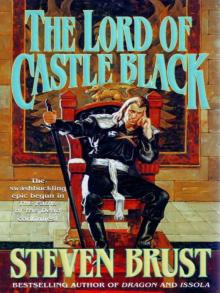 The Lord of Castle Black
The Lord of Castle Black To Reign in Hell: A Novel
To Reign in Hell: A Novel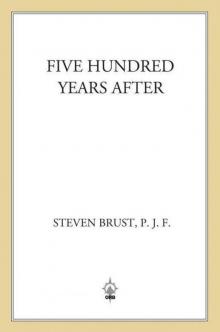 Five Hundred Years After (Phoenix Guards)
Five Hundred Years After (Phoenix Guards)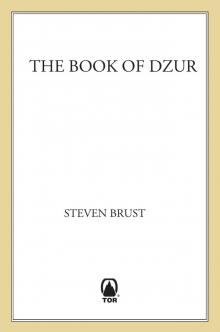 The Book of Dzur: Dzur ; Jhegaala
The Book of Dzur: Dzur ; Jhegaala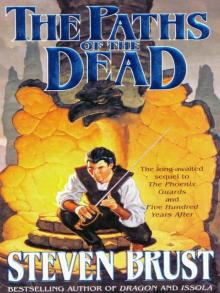 The Paths of the Dead
The Paths of the Dead Jhegaala
Jhegaala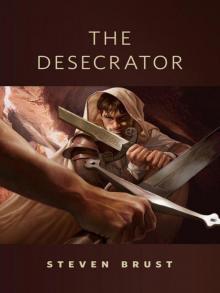 The Desecrator: A Tor.com Original
The Desecrator: A Tor.com Original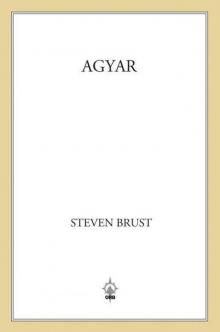 Agyar
Agyar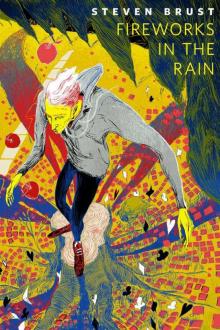 Fireworks in the Rain
Fireworks in the Rain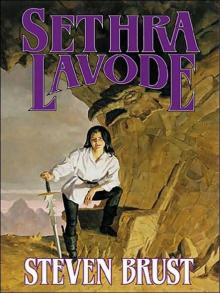 Sethra Lavode
Sethra Lavode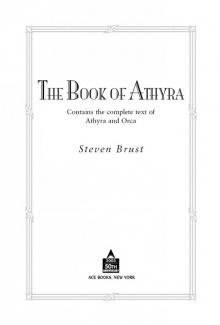 The Book of Athyra
The Book of Athyra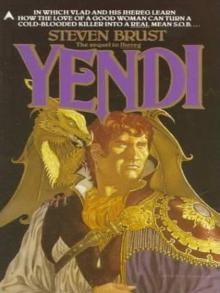 Yendi
Yendi Good Guys
Good Guys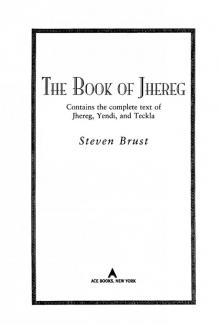 The Book of Jhereg
The Book of Jhereg Cowboy Feng's Space Bar and Grille
Cowboy Feng's Space Bar and Grille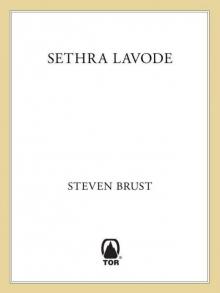 Sethra Lavode (Viscount of Adrilankha)
Sethra Lavode (Viscount of Adrilankha) My Own Kind of Freedom
My Own Kind of Freedom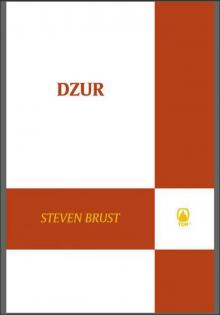 Dzur (Vlad Taltos)
Dzur (Vlad Taltos) The Lord of Castle Black: Book Two of the Viscount of Adrilankha
The Lord of Castle Black: Book Two of the Viscount of Adrilankha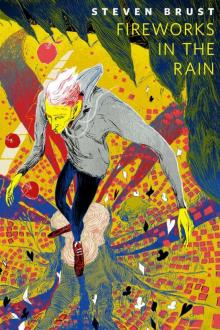 Fireworks in the Rain: A Tor.Com Original
Fireworks in the Rain: A Tor.Com Original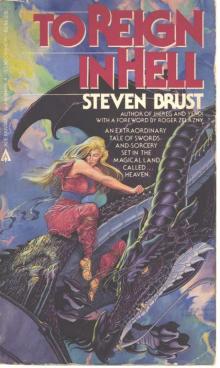 To Reign In Hell
To Reign In Hell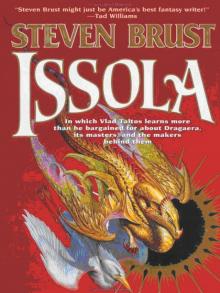 Issola
Issola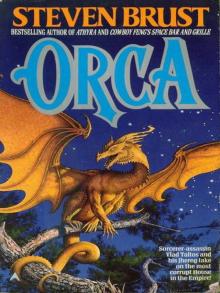 Orca
Orca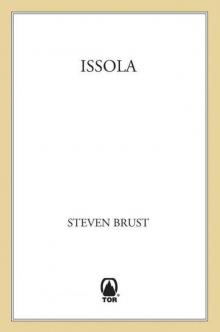 Issola (Vlad Taltos)
Issola (Vlad Taltos)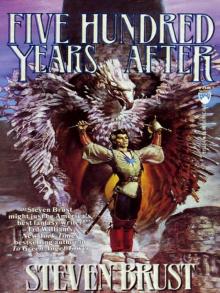 Five Hundred Years After
Five Hundred Years After The Phoenix Guards
The Phoenix Guards Taltos
Taltos![[Vlad Taltos 06] Athyra Read online](http://i1.bookreadfree.com/i1/03/24/[vlad_taltos_06]_athyra_preview.jpg) [Vlad Taltos 06] Athyra
[Vlad Taltos 06] Athyra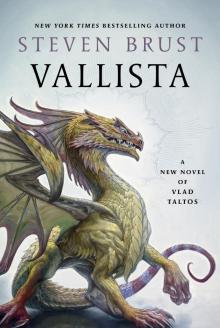 Vallista--A Novel of Vlad Taltos
Vallista--A Novel of Vlad Taltos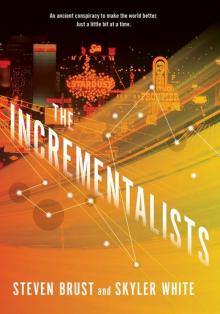 The Incrementalists
The Incrementalists![[Vlad Taltos 04] Taltos Read online](http://i1.bookreadfree.com/i/03/24/[vlad_taltos_04]_taltos_preview.jpg) [Vlad Taltos 04] Taltos
[Vlad Taltos 04] Taltos![[Vlad Taltos 03] Teckla (v 1.1) Read online](http://i1.bookreadfree.com/i1/03/27/[vlad_taltos_03]_teckla_v_1_1_preview.jpg) [Vlad Taltos 03] Teckla (v 1.1)
[Vlad Taltos 03] Teckla (v 1.1)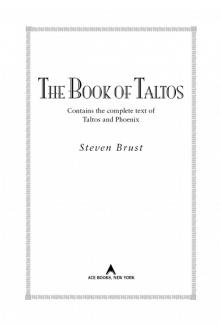 The Book of Taltos
The Book of Taltos The Paths of the Dead (Viscount of Adrilankha)
The Paths of the Dead (Viscount of Adrilankha) Jhegaala (Vlad Taltos)
Jhegaala (Vlad Taltos)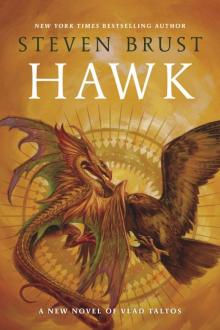 Hawk (Vlad)
Hawk (Vlad)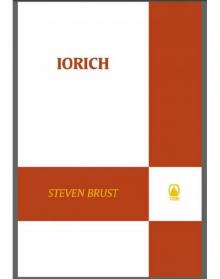 Iorich
Iorich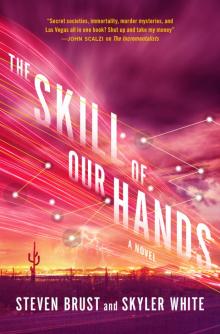 The Skill of Our Hands--A Novel
The Skill of Our Hands--A Novel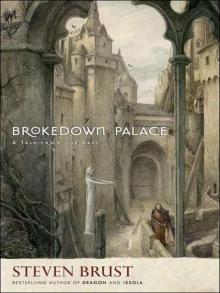 Brokedown Palace
Brokedown Palace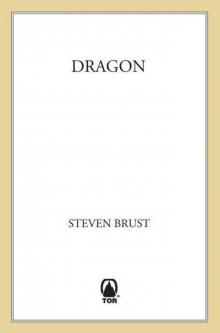 Dragon (Vlad Taltos)
Dragon (Vlad Taltos) Dragon
Dragon Athyra
Athyra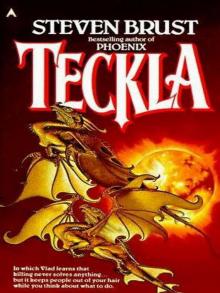 Teckla
Teckla Dzur
Dzur